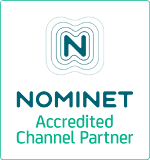Search Engine Optimisation
Just what is Search Engine Optimisation (SEO)? According to Wikipedia it is:
"...the process of improving the volume or quality of traffic to a web site from search engines via "natural" or un-paid ("organic" or "algorithmic") search results".
How does it affect me? According to Wikipedia:
"the earlier (or higher) a site appears in the search results list, the more visitors it will receive from the search engine."
You will know from your own experience that you work your way down the results page, sometimes you will go to page 2 and if you are really desperate you'll look at page 3. Then you will redefine what you are asking for.
OK, so how do these search engines work?
In a nutshell, the three main search engines Google, Yahoo! and MSN Search use spiders or bots (Googlebot works for Google, Slurp works for Yahoo! and MSNBot works for MSN Search).
These spiders/bots read web pages finding keywords and new data that they add to a giant index. The index is then sorted by various means (mostly secret to avoid mis-use) to create a list of results for any search criteria. This criteria can involve previous search history by an individual and their location. Each search engine will produce different results.
In essence the search engines try to put themselves in the place of the user.
How can I make sure our club website is the first one on results page 1?
Google SEO Starter guide advises "you should base your optimisation decisions first and foremost on what's best for the visitors to your website". They go on to additionally caution that "Focusing too hard on specific tweaks to gain ranking in the organic results of search engines may not deliver the desired results".
Yahoo! notes that pages should be "designed primarily for humans, with search engine considerations a secondary concern"
MSN simply says "The best way to attract people to your website, and keep them coming back, is to fill your webpages with valuable content in which your target audience is interested."
The two most important factors which are essential for good ranking positions are website optimisation (content) and link building.
Link popularity is the main factor major search engines use to rank web sites. This makes link building an integral part of any effective search engine optimisation strategy.
A few simple recommendations
Firstly, secondly, thirdly, always... remember your reader;
Choose a title for each page that accurately and succinctly describes the content - try to keep within 6 words;
Use menu names that are logical and describe in one or two words the content;
When you are asked to provide a description for images or new menu options, write a short succinct phrase describing the page or image;
When you are saving an image ready to upload to your website, take the opportunity to rename it to something that describes the image in one or two words - rather than uploading an image called DSC00234.jpg why not call it sailingday.jpg, make sure you add a fuller description when you are prompted. Apart from the search engines prefering a proper name for an image it will make it much easier to identify an image in your libary;
Introduce your website to the major search engines: you'll find full information in the members section when you log in to your website, look at Submit your pages to popular search engines there is plenty of help and advice
Check your links - a dead end frustrates the reader and so it will frustrate spiders and bots;
Take every opportunity to update your website, add new information, tell people about a recent event and promote each new event.
Finally
Don't get too bogged down in SEO, if you always remember your reader and that they are just interested in what, where and when, you will be a long way to achieving a useful ranking.
Further reading:



